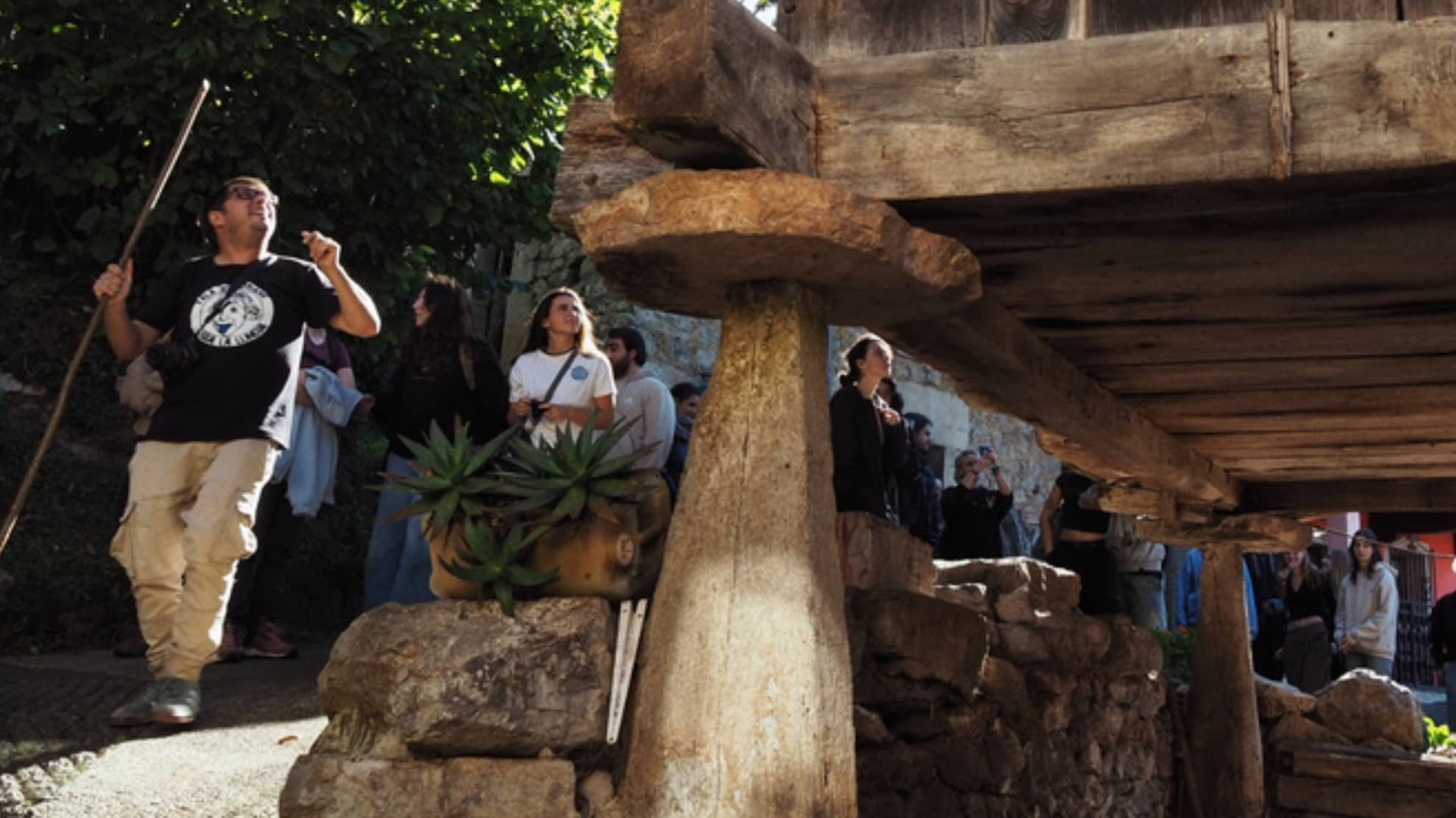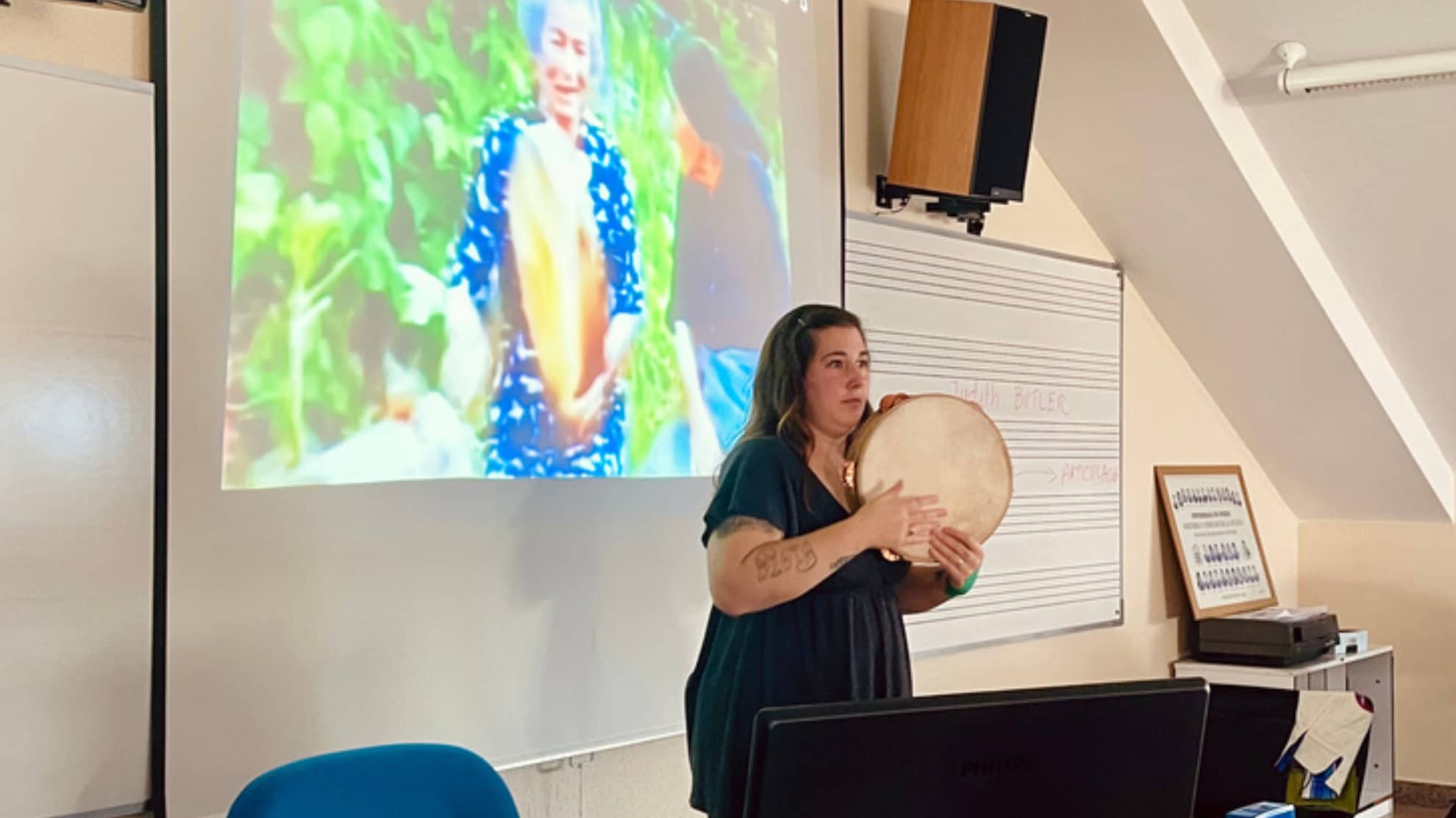TEACHING INNOVATION - OPEN CLASSROOMS INITIATIVE LAUNCHES WITHIN THE CULTURALITY PROJECT
We are pleased to announce the initiative Open Classrooms – Shared Experience & Knowledge, organized by Llara Fuente Corripio (art historian specializing in landscape, crafts, sustainability, territory, and rural communities) and Marta Fernández Vilar (musicologist specializing in traditional music, digital ethnomusicology, sustainability, and intangible heritage). This program bridges university students and rural artisans, researchers, and cultural managers, fostering an interactive learning experience for students of Art History and History and Sciences of Music through direct engagement with cultural heritage practices.
This initiative aims to create a space for interdisciplinary knowledge exchange and debate around ethnographic practices, where students will gain insights into career opportunities linked to cultural heritage, while artisans, researchers, and cultural managers share their expertise within the academic setting. It also seeks to connect urban university students with the challenges of rural communities, enriching their understanding of social and cultural dynamics.
This pilot program integrates the subjects of Ethnographic Heritage, Popular Art, and Spanish Ethnomusicology, aligning their shared focus on rural cultural heritage preservation. Through joint practical sessions, classroom visits by Asturian cultural heritage professionals, and a field trip, students will develop a final project involving an inventory sheet, recording a cultural element, and designing a rural revitalization project. The program ensures the representation of women among visiting professionals and considers social and environmental sustainability in its design, making it a model for inclusive and responsible cultural heritage education.
TEACHING INNOVATION - OPEN CLASSROOMS
Shared Experience & Knowledge
By Llara Fuente Corripio, art historian and Marta Fernández Vilar, musicologist
C/ Amparo Pedregal, s/n, 33011 – Oviedo, Asturias
Contacts:
APPROACH AND METHODOLOGY
Aimed at students coursing the 4th year of the degrees in Art History and History and Sciences of Music, within the framework of the subjects of Ethnographic Heritage and Popular Art and Spanish Ethnomusicology.
Both subjects share a common interest in the methods of collecting, caring for and disseminating rural culture, with a critical and responsible approach. They are being imparted during the same course and quarter, but without establishing synergies between the two of them.
We propose an interdisciplinary approach with collaboration between teachers and students, through joint practical sessions with classroom visits from different professionals in the field of Asturian cultural heritage and a field trip. In addition, it encourages the mutual enrichment of students with the completion of a joint final project, which includes the creation of an inventory sheet and the recording of a cultural element, along with the design of a cultural revitalization project in rural areas.
The project also develops a specific continuation for the Art History degree, which will follow the dynamics of classroom visits and another field trip
For the organization of the visits, the representation of women has been guaranteed. Social and environmental sustainability criteria have also been considered.
Goals
- Establish a first-hand, direct contact between artisans and students, offering a practical and enriching learning opportunity.
- Create a space for interdisciplinary knowledge and debate around ethnographic work.
- Provide artisans with a place to disseminate and get their knowledge recognized within the university environment.
- To bring a university student body that is primarily urban into contact with the problems and needs of rural areas.
- Presenting students with different career opportunities linked to cultural Heritage.



SCHEDULE / SHARED ITINERARY
September 26, 2024
“What is ethnography? How is the ethnographic method proposed?“
Speaker: Xose Antón Fernández (Ambás)
An approach to ethnographic collection methods of the 21st century, as well as to research in this area carried out in the last 15 years in the Principality of Asturias.
October 10, 2024
“A link with traditional Asturian culture”
Speaker: Raquel Vega Roza, from “Vezos y Costumes”
Sources for the re-interpretation and artisanal making of the Asturian costume. Ethnographic heritage as of today, dissemination and teaching of tambourine.
1October 17, 2024
“Dynamization of a rural area”
Speaker: Antía Seijas Vieites, from “Proyecto Cultural La Benéfica”, Piloña
Cultural heritage as a source of cultural revitalization.
October 24, 2024
Field trip to the East of Asturias: Oviedo-Cangas de OnísAmieva-Ponga-Oviedo
Accompanied by the ethnographer Xosé Antón Ambás, we ill visit points of interest linked to the presence of informants or elements of the landscape.
SPECIFIC ITINERARY
October 31, 2024
”Wood as a raw material”
Speaker: Christian Vito. from “Reseteando Madera”
A space to learn to differentiate woods, tools, work techniques, treatments, as well as the potential and issues of native and foreign woods.
November 7, 2024
“Traditional construction techniques“
Speaker: Macario Iglesias from “Bioconstrucción Asturies”
Constructions made of mud, plant fibres and ood ood weave (cebatu).
November 21, 2024
Field trip: Oviedo-Ladines-Laviana-Oviedo
1. Visit to the “Laboratorio Biomimético”, a space for bioinspired creation with contemporary artisanal pieces.
2. Analysis of the territory. The configuration of the rural landscape.
3. Visit to granaries and paneras with archaeologist Fernando Mora.
CONTINUITY
The project raises the possibility of being held again in future academic years, including posible modifications to maintain or incorporate visits aligned with the interests of the students. To do this, the surveys at the beginning and end of the course will be taken into account, allowing a joint evaluation of the proposal.

